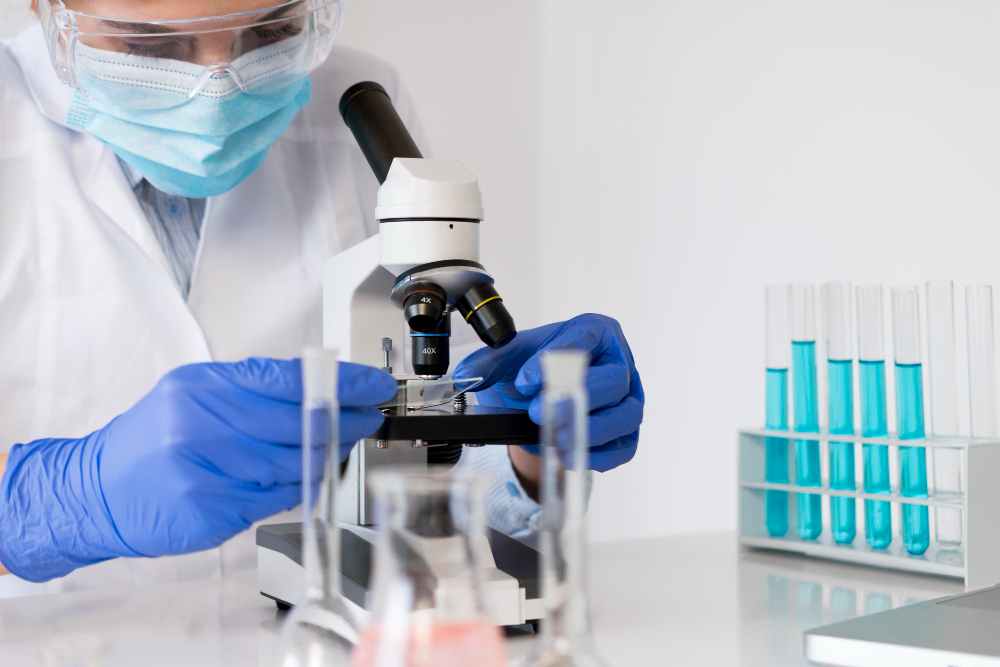Bacterial vaginosis is a common vaginal infection, which occurs due to an imbalance of bacteria in the vagina. Normally, the vagina contains a delicate balance of different types of bacteria, primarily Lactobacillus species, which help maintain a healthy environment. In cases of bacterial vaginosis, the balance is disturbed and there is an overgrowth of harmful bacteria.
What are the symptoms of bacterial vaginosis?
The exact cause of bacterial vaginosis is not fully understood, but certain factors can increase the risk of developing the condition. These include multiple sexual partners, douching, use of intrauterine devices (IUDs), and reduction of Lactobacillus bacteria in the vaginal flora.
Symptoms of bacterial vaginosis can vary. Some women with bacterial vaginosis may not experience any symptoms. Typical complaints and signs of vaginal infection are:
- Vaginal discharge: The discharge is usually thin, watery, and gray-white in color. There may be a fishy odor that becomes more noticeable after intercourse.
- Vaginal odor: An unpleasant "fishy" smell, especially after intercourse, is a characteristic symptom of bacterial vaginosis.
- Vaginal itching or irritation: Some people may experience mild itching or irritation in the vaginal area.
What are the causes of bacterial vaginosis?
The exact causes of bacterial vaginosis are not fully understood, but it is thought to occur due to an imbalance in the naturally occurring bacteria in the vagina. Normally, the vagina contains a diverse mix of bacteria, primarily Lactobacillus species. They help maintain a healthy vaginal environment by producing lactic acid and keeping the pH level acidic.
Several factors can contribute to the development of bacterial vaginosis, including:
Change in vaginal pH: Any factor that disturbs the natural pH balance of the vagina can increase the risk. The average pH becomes less acidic, allowing harmful bacteria to thrive. Activities such as douching, which alter vaginal pH, may increase the likelihood of local attachment of bacteria.
Disturbance of vaginal flora: The presence of certain bacteria, such as Gardnerella vaginalis, is commonly associated with bacterial vaginosis. Disrupting the normal balance of bacteria, including the reduction of beneficial Lactobacillus species, can allow these harmful bacteria to multiply and cause infection.
Sexual activity: Although bacterial vaginosis is not classified as a sexually transmitted infection (STI), it is more common in women who are sexually active, especially with multiple partners. It is believed that certain sexual practices can contribute to the transmission or destruction of bacteria in the vaginal environment.
Antibiotics: The use of antibiotics, especially broad-spectrum antibiotics, can disrupt the natural balance of vaginal bacteria. This can lead to an overgrowth of harmful bacteria and an increased risk of developing bacterial vaginosis.
Hormonal changes: Fluctuations in hormone levels, such as those that occur during menstruation, pregnancy or menopause, can affect the vaginal environment and increase the risk of infections.
It is important to note that while these factors may contribute to the development of bacterial vaginosis, the exact mechanisms and interactions are still being studied. Each individual's situation may vary, and some women may develop the condition without any apparent risk factors.
What are the main bacteria that cause bacterial vaginosis?

The main bacteria associated with bacterial vaginosis include:
Gardnerella vaginalis: This bacteria is often found in large numbers in women with the disease. It is believed to play an important role in the development and progression of infection. Gardnerella vaginalis can produce enzymes that break down certain compounds in the vagina, resulting in the characteristic odor.
Atopobium vaginae: This bacteria is also common in such cases. It is believed to contribute to the pathogenesis of the infection. It is associated with an increase in vaginal pH and the production of certain harmful substances.
Prevotella spp.: Several species of the genus Prevotella, such as Prevotella bivia and Prevotella disiens, have been implicated in vaginosis. These bacteria are anaerobic, meaning they thrive in an environment with little or no oxygen. Prevotella spp. it can produce enzymes that break down substances in the vagina. This leads to the characteristic symptoms.
It is important to note that the infection is usually caused by an imbalance of the vaginal microbiota, not by the presence of a single pathogenic bacterium.
Medications for bacterial vaginosis - what does successful treatment depend on?

Bacterial vaginosis is usually treated with antibiotics to restore the balance of bacteria in the vagina. The specific antibiotic regimen and duration of treatment may vary depending on the severity of the infection and the recommendation of the health care provider. Commonly prescribed medications include:
Metronidazole: This antibiotic is available in oral form or as a vaginal gel or cream. It is often prescribed as a first-line treatment. When taken orally, it is usually given as a single dose or a seven-day course. The vaginal gel or cream is used intravaginally for a five-day course.
Clindamycin: Clindamycin is another antibiotic option. It is available as a cream that is administered intravaginally for a seven-day course.
It is important to finish the full course of antibiotics, even if symptoms improve or disappear before treatment ends. This helps ensure that the infection is completely eradicated and reduces the risk of recurrence.
Home remedies to help treatment be more successful
Avoid flushing: douching can disrupt the natural balance of bacteria in the vagina and worsen the symptoms of bacterial vaginosis. It is generally recommended to avoid dousing altogether.
Abstaining from sexual activity or using barrier methods: In some cases, health care providers may advise abstaining from sexual activity or using barrier methods (such as condoms) during treatment to prevent reinfection.
Probiotics: Probiotics, especially those containing Lactobacillus strains, may be recommended to restore the natural balance of bacteria in the vagina. They can be taken by mouth or used as vaginal suppositories or creams.
Recurrent bacterial vaginosis - is there weak immunity?
Recurrent bacterial vaginosis can be related to a variety of factors, including immune system function. While the exact relationship between this condition and immune function is not fully understood, it is believed that a compromised immune response may contribute to the recurrence of infection.
The immune system plays a critical role in maintaining a healthy vaginal environment by keeping the growth of harmful bacteria in check. If the immune system is weakened or not functioning optimally, it may have difficulty effectively controlling bacterial overgrowth, leading to repeated episodes of bacterial vaginosis.
Which weakens immunity
Several factors can potentially weaken immune function and increase the risk of recurrent infections:
Disorders of the immune system: Certain disorders or conditions of the immune system, such as HIV/AIDS, autoimmune diseases, or chronic diseases that affect the immune response, can increase susceptibility to infections, including recurrent bacterial vaginosis.
Stress: Prolonged or chronic stress can weaken the immune system, making people more susceptible to infections, including bacterial vaginosis. Stress can affect the body's ability to maintain a healthy balance of bacteria in the vaginal environment.
Hormonal changes: Fluctuations in hormone levels, such as those occurring during the menstrual cycle or menopause, can affect the vaginal environment and immune response. These hormonal changes may contribute to the recurrence of infection in women who are susceptible.
Use of antibiotics: Antibiotics are often used as therapy. Their repeated or prolonged use can disrupt the natural balance of bacteria, including the beneficial ones that help maintain vaginal health. This can potentially weaken the immune response and increase the likelihood of relapse.
It is important to note that immune function is only one of several factors that may contribute to recurrent bacterial vaginosis. Other factors, such as sexual practices, hygiene habits and vaginal acidity (pH), also play a significant role. For recurrent infections, it is worth doing more tests and taking a deeper look at general health.
Author Diana Petrova
Pictures: Freepik


